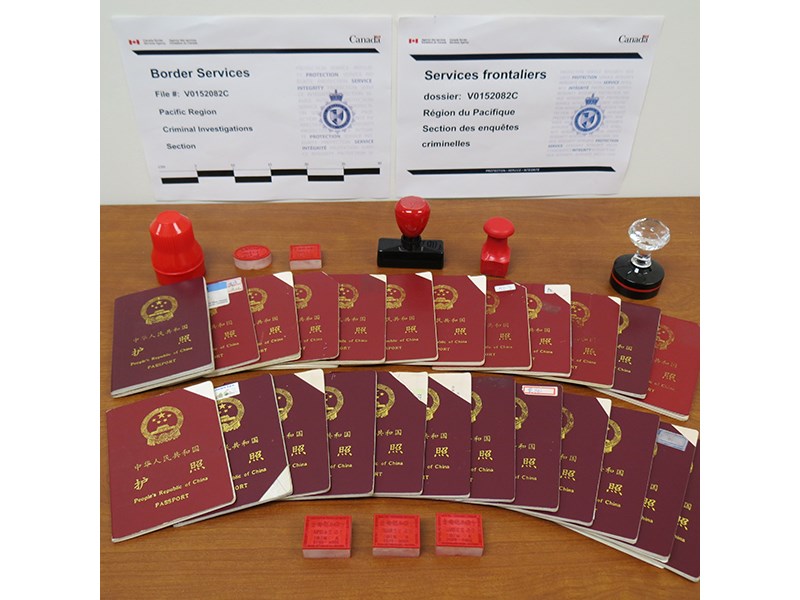The dominos are starting to fall in what was previously revealed by border agents to be B.C.’s largest known immigration fraud scheme.
Xiao Qing Li, once an investor-class immigrant, has been deported after using Richmond-based New Can Consultings Ltd., an unlicensed immigration consulting firm, and Wellong International Investments, whose owner Xun “Sunny” Wang received a seven-year prison sentence in October 2015 for committing tax evasion and fraud by creating fake passports for wealthy Chinese nationals.
Li, the owner of an $8-million West Vancouver mansion, exhausted her efforts to stay in Canada after applying for a judicial review of her unsuccessful appeal of a deportation order, in June, 2017. Federal Court Judge Henry Brown sided with the appeal decision on Feb. 21.
According to Judge Brown`s decision, Li, 49, originally came to Canada with her husband and two sons from China through Quebec’s immigrant investor program in 2005. They were declared permanent residents in December 2006.
But just 10 days later, the family returned to China and “over the next seven years, they only intermittently visited Canada,” according to the court decision.
In 2011, Li and her sons applied to renew their permanent resident cards, using New Can, which “fraudulently facilitated false employment and other documents for expired permanent resident cards and did so for (Li),” according to Judge Brown.
Last September, following convictions of seven New Can and Wellong employees, CBSA’s Inland Enforcement Section said it had identified over 1,600 suspected clients who utilized the scam. Of those, 770 clients have already either lost their residency status or been reported for inadmissibility under the Immigration and Refugee Protection Act.
Li knew when she applied for the renewal in 2011 she had not spent enough time in Canada to meet the residency requirements, so claimed she was absent for 837 days, rather than the 1,332 days Canada Border Services later estimated she had actually been out of the country, according to the decision.
In 2014, she returned to Canada with her sons, with the intention of living in Canada on a long-term basis. Meanwhile, Li’s husband, a senior partner at a large Chinese law firm, renounced his permanent resident status in 2015, making Li and her sons what is often described as a “satellite family.”
But in April 2016, while trying to enter Canada from the U.S., Li was questioned by Canada Border Services about the time she had spent out of the country. Officers concluded Li had been absent for “quite substantially more than allowed” between 2011 and 2016.
Li had appealed a removal order on humanitarian and compassionate grounds.
While the appeal board considered factors including how well her sons fit in at their Canadian schools and their stated preference to remain in Canada, along with the family’s $10 million in Canadian assets, it also considered the family’s considerable ties to China, including Li’s husband’s job at which she testified he earns $500,000 to $800,000 annually — enough to live comfortably in China.
A 2016 report by Canada’s Auditor General determined the federal government has not been adequately detecting and preventing citizenship fraud.
With files from North Shore News



